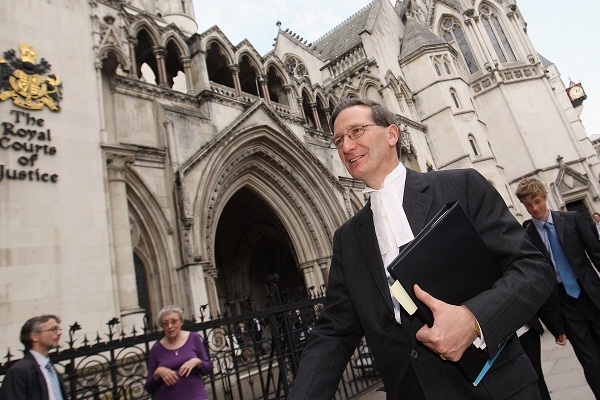A lunchtime spat has broken out over Sergeant Danny Nightingale, the SAS serviceman who was sentenced to 18 months in prison by a court martial after pleading guilty to possession of a prohibited firearm (a 9mm Glock pistol) and ammunition.
Sgt Nightingale’s case has attracted wide public support. His friends and family said that the pistol, which was a ‘war gift’ from Iraqi soldiers he mentored in 2007, had not been packed by him, and added that a brain injury had made him forget that it was among his possessions. Supporters say that, owing to these facts, the sentence is unduly harsh.
The government’s hand has been forced. The Defence Secretary, Philip Hammond, wrote to the Attorney General, Dominic Grieve, asking for a review of the case. Minutes later, Grieve’s office replied, saying, with its standard tone of arch superiority, that:
‘It would be inappropriate for the Attorney General to review either the decision to prosecute or comment on the appropriateness of the sentence. That is a matter for the Court Martial Appeal Court, in due course.’
The pomposity of that statement has set plenty of tongues wagging in Westminster and elsewhere: Louise Mensch has described it as ‘inappropriate’ and ‘abominable’. Yet, technically, under the 2006 Armed Forces Act, Grieve is right to defer to the Court Martial Appeal Court because it exercises jurisdiction here.
The Act also stipulates how courts martial must impose mandatory custodial sentences on illegal firearm possession in line with the 1968 Firearms Act. (The CPS’ sentence guidelines, complete with aggravating and mitigating factors, are laid out here.) However, subsection 2 of section 227 of the 2006 Act also gives the courts martial a degree of discretion when applying sentences in ‘exceptional circumstances’.
The scope of the 2006 Act, and the processes it has introduced in courts martial, are now subject to a parliamentary debate, led by Julian Brazier, the Conservative MP and a former SAS reservist. The pressure over this affair appears to be on the military.
Update: Carl Gardner makes the invaluable point that it would have been wholly wrong for the Attorney General to interfere in prosecutions because of political and media pressure, and adds that the Ministry of Defence should not have published Philip Hammond’s letter to Grieve’s office.






Comments